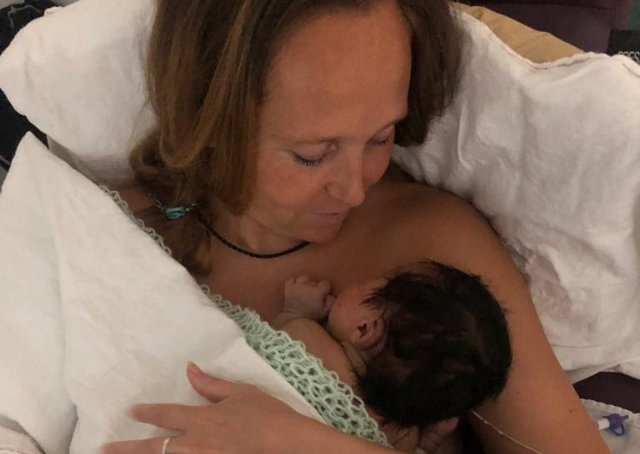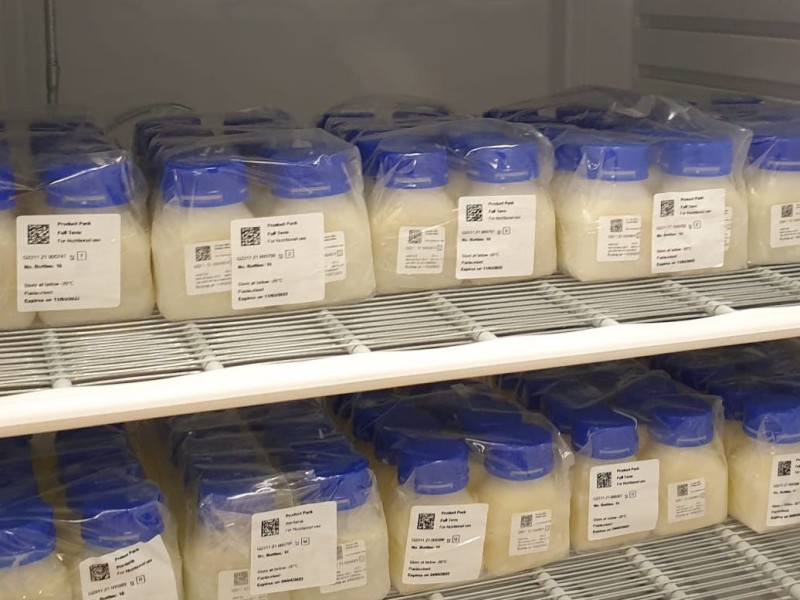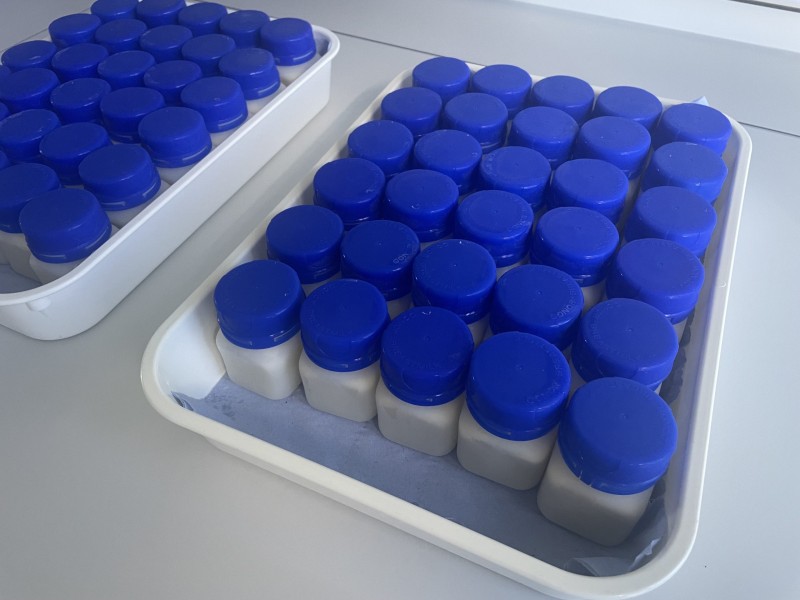Yulia’s story
Yulia was diagnosed with non-Hodgkin’s lymphoma one month before giving birth. She was told she wouldn’t be able to breastfeed during chemotherapy so contacted the Hearts Milk Bank to access donor milk.
READ YULIA'S STORY
Our mission at the Hearts Milk Bank is to support families facing challenges with feeding. We believe that all parents should have access to information and choices, so they can make informed decisions. As well as supplying donor milk to neonatal units, the Hearts Milk Bank is unique in being the only milk bank in the country which routinely supports families in the community with donor milk. This can help families where mum needs time and support to establish her own milk supply, and parents where breastfeeding is not possible, such as mothers with cancer, HIV and other health conditions, same-sex couples and those who have given birth via surrogate, and mothers who have had previous mastectomy surgery.
Your own milk is tailor-made to your baby’s needs for growth, development and immune protection. Wherever possible, our specialist lactation support team will work with you to help establish breastfeeding. When a mother is unable to provide enough of her own breastmilk, donor milk is usually the preferred option for supplementation, particularly for preterm and very small infants in hospital. This is because it is more easily digested and contains most of the important components that are only found in breastmilk. These help to protect tiny babies from infections and gut conditions that can be very serious for new infants, especially those born early or with health complications.

Any family accessing donor milk from the HMF will need the support and oversight of a healthcare professional. This is to make sure that, where applicable the parent’s own lactation is being supported, and their health and the health of the baby is protected. Healthcare professionals could include a GP, paediatrician, community midwife, health visitor, dietitian, or IBCLC (International Board-Certified Lactation Consultant).
If breastfeeding is impossible, for example because of previous mastectomies, cancer treatments or medication use that is contraindicated in lactation, then contacting us early during pregnancy or as soon as possible helps to make sure that you have a plan that you are happy with, and the donor milk is there when you need it.
If you would like to discuss access to donor milk please contact us or talk to your healthcare team.
All donor milk is provided free at the point of care. The HMB is a charity and does not accept payment directly from parents. However, we are so grateful when supporters fundraise for us to make help possible for even more families. If you’d like to support the charity you can find out more here.

All donor milk provided by the Hearts Milk Bank is breast milk that has been freely donated by mothers who have milk which is surplus to their own baby’s needs. The nutritional and immunological components of donor milk will vary according to the donor, the age of her baby, how and when she expressed and how long it has been stored. All of our milk donors are recruited in the UK and are registered with NHS healthcare providers. They undertake extensive health screening, including blood tests. All donor milk is tested by microbiology and pasteurised at the Hearts Milk Bank, which is necessary to ensure harmful viruses and bacteria are destroyed, in accordance with the NICE Clinical Guideline 93. If for religious or other reasons you or your child may need to know more information about the donor milk that was fed to your baby, it will be possible to provide this in the future through the records we keep. You can read more about this on our Milk Kinship page here.
Yulia was diagnosed with non-Hodgkin’s lymphoma one month before giving birth. She was told she wouldn’t be able to breastfeed during chemotherapy so contacted the Hearts Milk Bank to access donor milk.
READ YULIA'S STORY